Publications
Articles, publications, books, tools and multimedia features from the U.S. Institute of Peace provide the latest news, analysis, research findings, practitioner guides and reports, all related to the conflict zones and issues that are at the center of the Institute’s work to prevent and reduce violent conflict.
Question And Answer
Amid a Changing Global Order, NATO Looks East
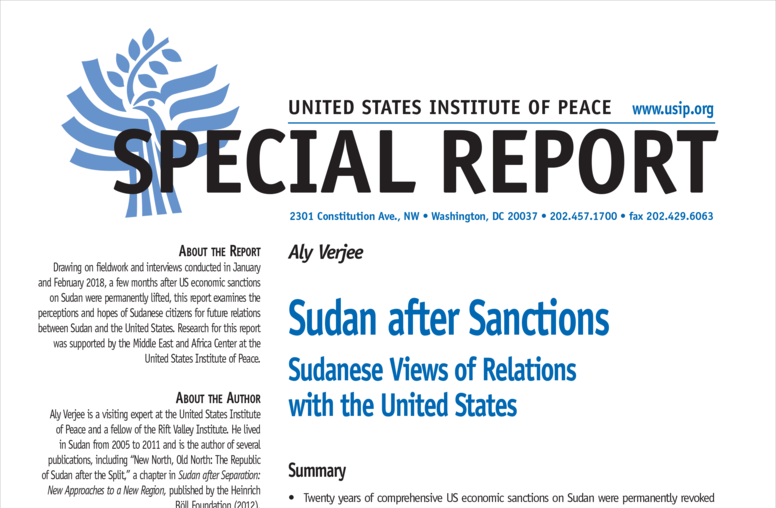
Sudan after Sanctions
In October 2017, the United States lifted a wide range of economic sanctions that had been in place against Sudan for two decades. Aly Verjee, a visiting expert at the United States Institute of Peace, recently interviewed roughly 50 Sudanese—including students, business owners, doctors, laborers, activists, and others outside the government-connected elite—on what this first step in the normalization of relations between Sudan and the United States might mean for the future of their country.

Charles North on Russia in Ukraine
“In its fifth year, Russia's armed aggression in Ukraine's Donbas region has become a costly burden with little strategic benefit,” says Charles North. One possible exit ramp has emerged from recent negotiations: a U.N.-mandated peacekeeping operation to facilitate a peace process resulting in Russia’s departure from Donbas and the return of control to Ukraine.
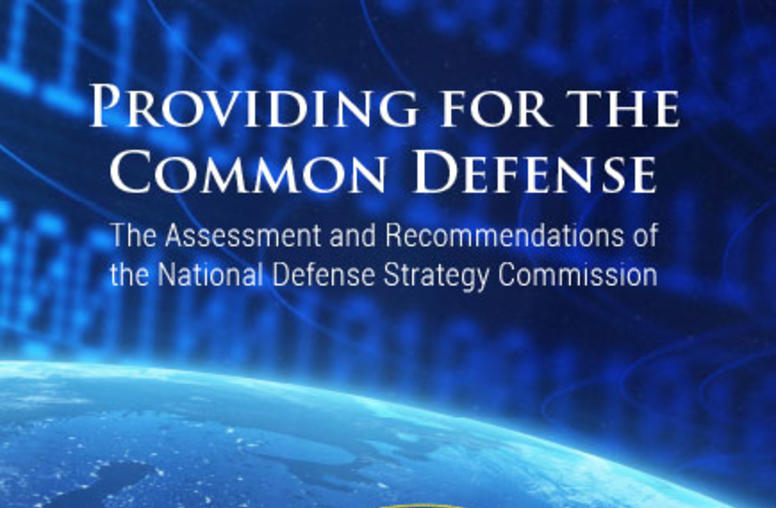
Providing for the Common Defense
The final report of the National Defense Strategy Commission is a compilation of the assessments of the National Defense Strategy and recommendations based on its analysis related not just to defense strategy, but also to the larger geopolitical environment in which that strategy must be executed. They consulted with civilian and military leaders in the Department of Defense, representatives of other U.S. government departments and agencies, allied diplomats and military officials, and independent experts.
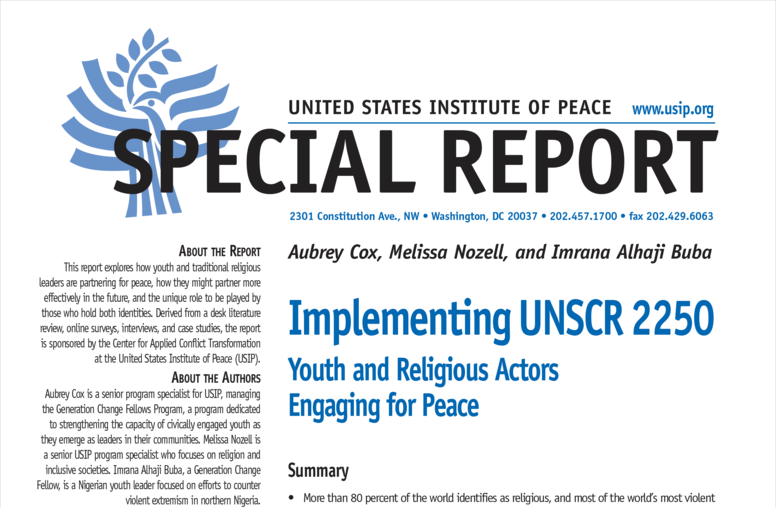
Implementing UNSCR 2250
In the context of UN Security Council Resolution 2250 on Youth, Peace, and Security, this report examines collaborations between youth and religious leaders in conflict-affected states. Using case studies, surveys, and interviews, it highlights the gaps, challenges, and opportunities for how religious actors and youth can and do partner effectively in the face of violent conflict.
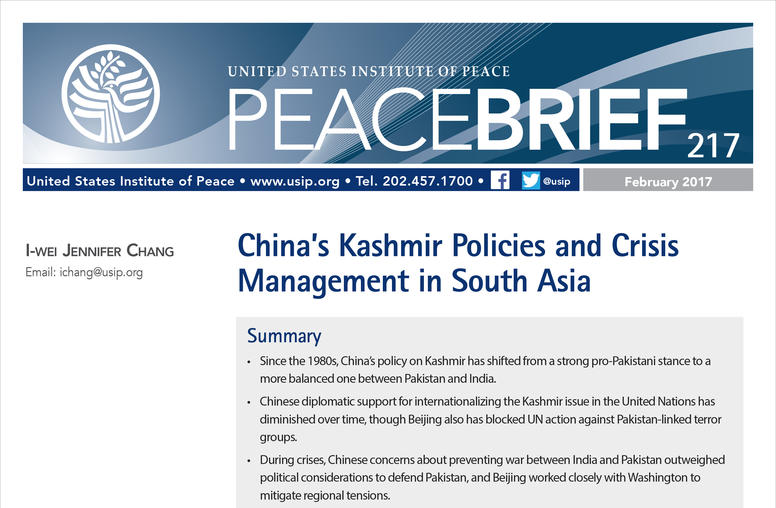
China’s Kashmir Policies and Crisis Management in South Asia
China’s policy on the Kashmir conflict between India and Pakistan has a significant impact on regional stabilization and crisis management efforts in South Asia. Beijing also plays an important third-party role in helping deescalate hostilities between the two countries. This brief discusses the evolution of China’s Kashmir policies over the past several decades and examines Chinese cooperation with the United States during periods of crises between the South Asian rivals.
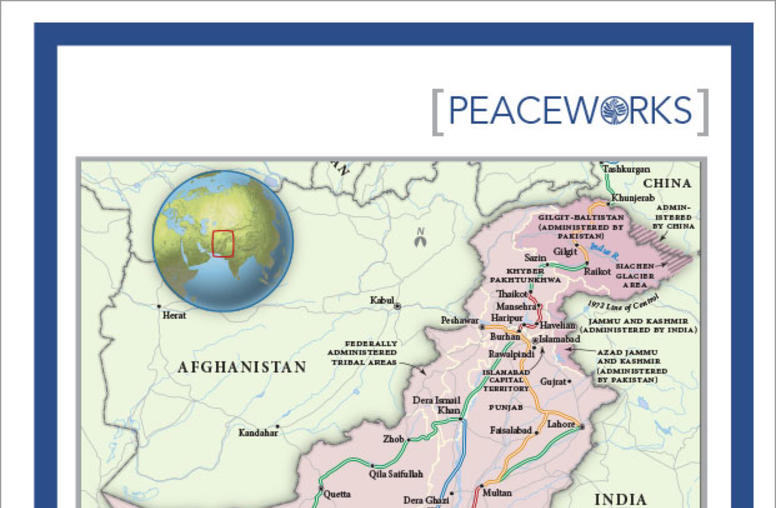
The China-Pakistan Economic Corridor
The China-Pakistan Economic Corridor (CPEC)—which connects China’s western province of Xinjiang to the Pakistan’s Arabian Sea coastline in Balochistan province—is the first large-scale attempt to bolster economic ties between Beijing and Islamabad, after decades of...
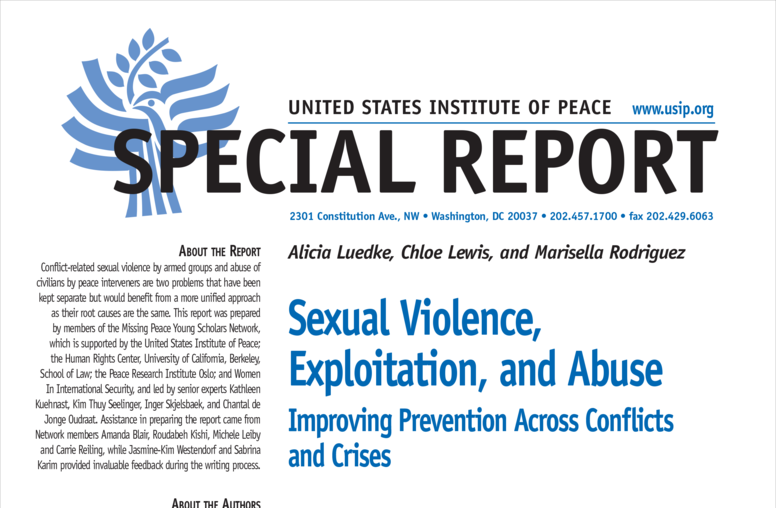
Sexual Violence, Exploitation, and Abuse
Former UN secretary-general Ban Ki-moon and current UN Secretary-General António Guterres have both recognized sexual exploitation and abuse (SEA) by interveners as a risk to peacekeeping operations, which has led to a series of new policy responses. As institutions begin to adopt new...
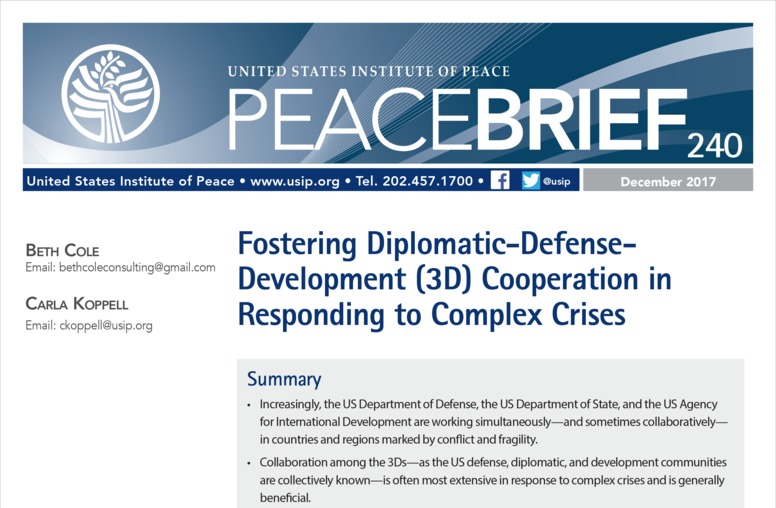
Fostering Diplomatic-Defense-Development (3D) Cooperation in Responding to Complex Crises
The US diplomatic, defense, and development communities (known as the “3Ds”) increasingly find themselves working together to tackle complex crises. This collaboration has already proved its worth, but how can it be made even more effective? A recent USIP research project sought to...
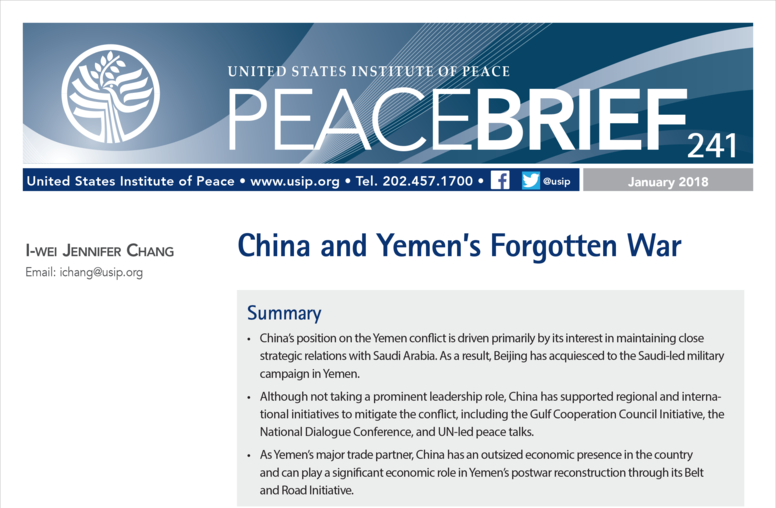
China and Yemen’s Forgotten War
Yemen is facing an acute humanitarian crisis after nearly three years of civil war, with more than 10,000 deaths and three-quarters of the country’s population in dire need of humanitarian assistance. Although eschewing a leadership role, China has supported regional and international efforts to mitigate the...
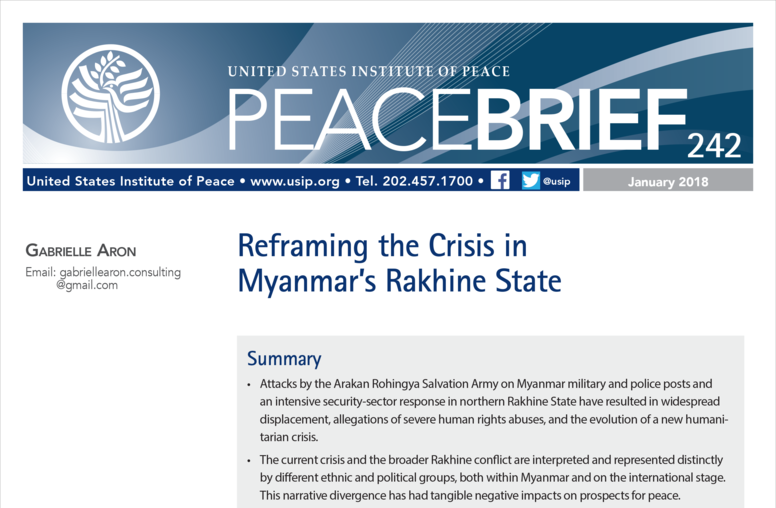
Reframing the Crisis in Myanmar’s Rakhine State
In the aftermath of attacks by the Arakan Rohingya Salvation Army and subsequent military clearance operations, two competing narratives have emerged. One frames the attacks as a critical threat to national security and the majority cultural-religious status quo. The second focuses on the human cost...